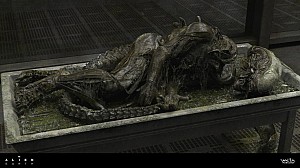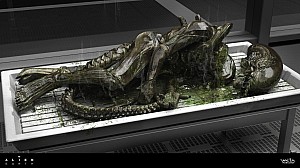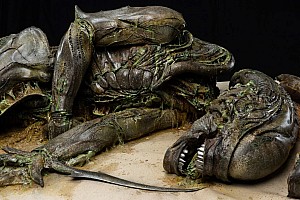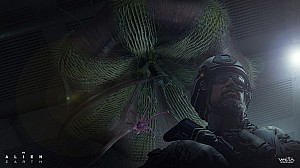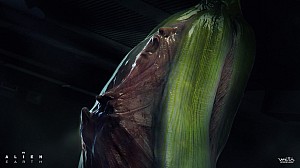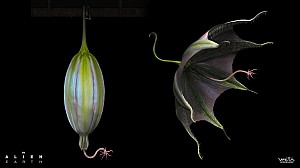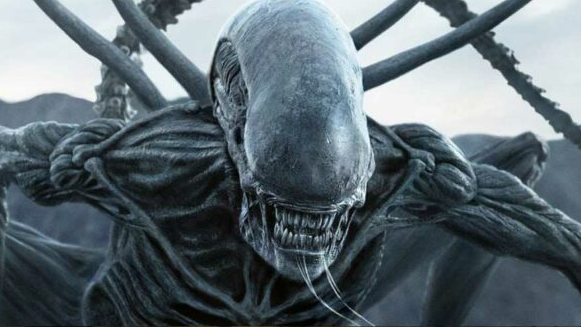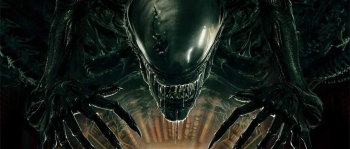What is the definition of canon - who is the fanbase - and how do I find out wha
Alien Movies Forum Topic
oduodu
MemberXenomorphFeb 16, 201312233 Views17 Replies
the wikipedia definition as described below has changed since i posted this.
According to wikipedia Canon in fiction is :
In fiction, canon is the conceptual material accepted as "official" in a fictional universe's fan base. It is often contrasted with, or used as the basis for, works of fan fiction, which are considered to be non-canon. It is used in two slightly different meanings: first, "it refers to the overall set of storylines, premises, settings, and characters offered by the source media text".[1] In this sense, canon is "the original work from which the fan fiction author borrows,"[2] or "the original media on which the fan fictions are based."[3] Secondly, it is used "as a descriptor of specific incidents, relationships, or story arcs that take place within the overall canon"; thus certain incidents or relationships may be described as being canon or not.[4] The alternative term mythology is often used, especially to refer either to a richly detailed fictional canon requiring a large degree of suspension of disbelief (e.g. an entire imaginary world and history), or to a central thread of storytelling running through a broad fictional canon that may episodically wander into many side plots with little connection to that thread.
1
My first question is: do you agree with this take on what canon is and if not what do you consider canon to be?
2
My second question is: If we accept that canon is what the fan base accepts as part of the fictional universe THEN What do the members on this forum regard as part of the alien universe ?
- A1
- B a1 a2
- C a1 a2 a3
- D a1 a2 a3 a4
- E p1 a1 a2
- F p1 a1 a2 a3
- G p1 a1 a2 a3 a4
- H a1DC
- I a1DC a2
- J p1 a1DC
- K p1 a1DC a2
You can do your own combinations (yes I got that from t2) Feel free to say why you do feel the way you do. You can add AVP 1 and AVP 2 (whatever you feel adheres to your concept of canon of the alien universe).
3
What do we consider a fan base to be? Am I oduodu part of the fan base? What qualifies me as part of the fan base?
4
What would be the best way of going about establishing what the fan base considers as official? A poll? Like I tried above?
5
If you feel I this is a pointless exercise then would you please explain why? Please add any ideas or thought you might want but help me come to an understanding of what canon means and who the fan base is.
Thank you.

Viddy well, little brother. Viddy well.
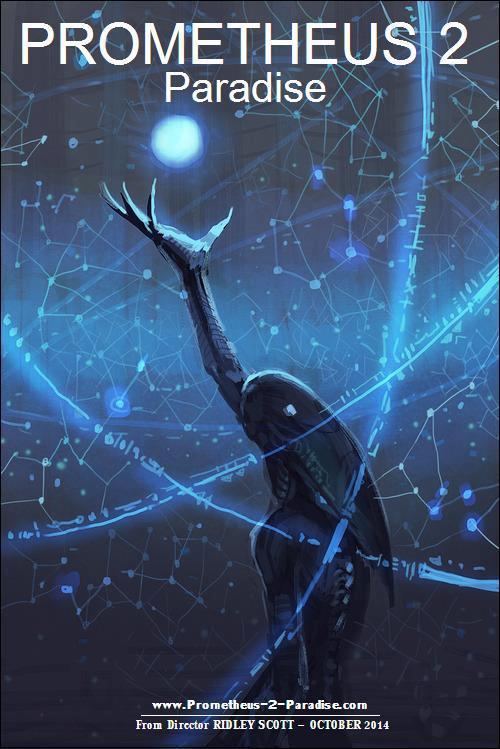
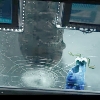


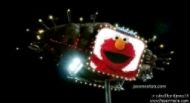
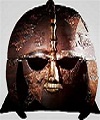
The poster was good though!

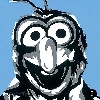
R.I.P Sox 01/01/2006 - 11/10/2017

R.I.P Sox 01/01/2006 - 11/10/2017

R.I.P Sox 01/01/2006 - 11/10/2017
Wikpedia has changed their definition on canon(fictional). No longer what the fanbase says it is . I wonder why ??
the new definition:
n fiction, canon is the material accepted as part of the story in an individual universe of that story. It is often contrasted with, or used as the basis for, works of fan fiction. The alternative terms mythology and continuity are often used, with the former being especially to refer to a richly detailed fictional canon requiring a large degree of suspension of disbelief (e.g. an entire imaginary world and history)
Origin[edit]
The use of the word "canon" in reference to a set of texts derives from Biblical canon, the set of books regarded as scripture, as contrasted with non-canonical Apocrypha.[1] The term was first used by analogy in the context of fiction to refer to the Sherlock Holmes stories and novels, written by Sir Arthur Conan Doyle. Ronald Knox used the term in a 1911 essay "Studies in the Literature of Sherlock Holmes" to distinguish Doyle's works from subsequent pastiches by other authors.[2][3] It has subsequently been applied to manymedia franchises. Among these are science fiction and fantasy franchises such as Star Trek, Star Wars, Harry Potter, Halo, Fallout, The Elder Scrolls, Mass Effect, BioShock,Doctor Who, Middle-Earth, A Song of Ice and Fire, the Narnia series, the The Dark Towerbooks, and Dinotopia, in which many stories have been told in different media, some of which may contradict or appear to contradict each other.[3]
Canonicity[edit]
When there are multiple "official" works or original media, the question of what is and what is not canonical can be unclear. This is resolved either by explicitly excluding certain media from the status of canon (as in the case of Star Trek), by assigning different levels of canonicity to different media (as in the case of Star Wars), by considering different but licensed media treatments official within their own continuities but not across them (as withBattlestar Galactica), or not resolved at all. The use of canon is of particular importance with regard to reboots or re-imaginings of established franchises, such as the 2009 Star Trek film, because of the ways in which it influences the viewer experience.[4]
The official Star Trek website describes Star Trek canon as "the events that take place within the live-action episodes and movies" (that is, the television series Star Trek, Star Trek: The Next Generation, Star Trek: Deep Space Nine, Star Trek: Voyager, Star Trek: Enterprise, and the Star Trek motion pictures).[5] Events, characters and story lines from tie-in novels, comic books, video games and Star Trek: The Animated Series are explicitly excluded from the Star Trek canon, but the site notes that elements from these sources have been subsequently introduced into the television series, and says that "canon is not something set in stone."[5] One example of a non-canonical element that later became canonical in the Star Trek universe was the name "Tiberius" becoming the official middle name of Enterprise captain James T. Kirk. The name was introduced in the Star Trekanimated series, and was later added into the official biography of the character by its mention in the live-action film Star Trek VI: The Undiscovered Country.
The Star Wars canon originally existed on several levels. The highest level was the originalStar Wars films, and statements by George Lucas; tie-in fiction from the Expanded Universe had a different level of canonicity.[3] The complex system is maintained by Leland Chee, a Lucasfilm employee.[3] The makers of Doctor Who have generally avoided making pronouncements about canonicity, with Russell T Davies explaining that he does not think about the concept for the Doctor Who TV series or its spin-offs.[6][7][8]
Fanon[edit]
Fan fiction is almost never regarded as canonical. However, certain ideas may become influential or widely accepted within fan communities, who refer to such ideas as "fanon", aportmanteau of fan and canon.[3][9][10]
Fanon is a common feature in large franchises and fictional universes where there are many canon and non-canon works, as in the Star Trek universe.
In fiction, continuity (also called time-scheme) is consistency of the characteristics of people, plot, objects, and places seen by the reader or viewer over some period of time. It is relevant to several media.
Continuity is particularly a concern in the production of film and television due to the difficulty of rectifying an error in continuity after shooting has wrapped up. It also applies to other art forms, including novels, comics, and video games, though usually on a smaller scale.
Most productions have a script supervisor on hand whose job is to pay attention to and attempt to maintain continuity across the chaotic and typically non-linear production shoot. This takes the form of a large amount of paperwork, photographs, and attention to and memory of large quantities of detail, some of which is sometimes assembled into the story bible for the production. It usually regards factors both with-in the scene and often even technical details including meticulous records of camera positioning and equipment settings. The use of a Polaroid camera was standard but has since been replaced by the advent of digital cameras. All of this is done so that ideally all related shots can match, despite perhaps parts being shot thousands of miles and several months apart. It is a less conspicuous job, though, because if done perfectly, no one will ever notice.
In comic books, continuity has also come to mean a set of contiguous events, sometimes said to be "set in the same universe" (see fictional crossover and fictional universe) or "separate universes" (see intercompany crossover).
http://tvtropes.org/pmwiki/pmwiki.php/Main/Canon
Canon
That which counts, in terms of continuity.
Canon, as it applies to television series, is substantially different from its literary counterpart. For example, there is no question of which Sherlock Holmes stories (the first literary works to which the term was applied) are canonical: those written by Doyle are, everything else isn't.
Television canon works much differently, as there are many authors involved. Works not officially sanctioned are generally outside of canon, but what remains inside is more nebulous. Officially licensed material, novelizations and tie-in novels are not usually considered canon. Even broadcast material can be excluded from the canon when decreed by Word of God.
The primary issue is that canons for completed works (especially with a single author) are descriptive, whereas fans' attempts to define canon for ongoing works are prescriptive. If a fact is "canon", you are "not allowed" to contradict it.
The concept of canon is almost entirely an invention of fandom. The writers will ignore, include, or change whatever facts they damned well like. This is not to say that the writers totally lack a sense of continuity, but it is a much weaker concept than "canon" as presented by fan communities. Writers can tweak continuity quite a lot without actually breaking it by using Broad Strokes.
In fan communities based on very loose continuities, "canon" can sometimes boil down to "the bits we like". Fans will attempt to find any excuse to "de-canonize" facts that they personally find inconvenient.
A related term is Deuterocanon![]() (known here on TV Tropes as Word of Dante), which in this context refers to those persons, places and/or events which are not explicitly shown on-screen, but which are considered "official" or close to it. For canon that comes not from the source material but from pronouncements by the creator, see Word of God. For the contrary idea that something is canon only if it appears in the source material (external opinions of the creator notincluded), see Death of the Author.
(known here on TV Tropes as Word of Dante), which in this context refers to those persons, places and/or events which are not explicitly shown on-screen, but which are considered "official" or close to it. For canon that comes not from the source material but from pronouncements by the creator, see Word of God. For the contrary idea that something is canon only if it appears in the source material (external opinions of the creator notincluded), see Death of the Author.
This concept is related to the literary term used to describe a body of work that is considered the foremost in quality and significance. For example, if one refers to the English-language literary canon, it is understood that one is speaking of books such as A Tale of Two Cities by Charles Dickens, Moby-Dick by Herman Melville, Pride and Prejudice by Jane Austen, and Heart of Darkness by Joseph Conrad—in other words, most of the books you read in High School are part of the English-language canon.
Canon should not be confused with Fanon, but everyone does it all the time. See Fanon Discontinuity for when people decide en masse to disregard actual canon, and Canon Discontinuity when the writers do it. Alternatively, see theContinuity Tropes index for all related concepts. Official Fan-Submitted Content is when the creators ask the fans to add to the canon.
Not to be confused with the Visual Novel Kanon, or the camera company Canon, or with singer/songwriter K'naan, or the The Legend of Zelda Big Bad Ganon, or with actual cannons.
Examples of canons in fiction
- When it comes to the Gundam franchise, the official word from Sunrise is that all works that appeared in official releases count as canon unless stated otherwise. Even if they try their hardest to line up with continuity and get appearances in crossover media like Super Robot Wars, this still creates quite a lot of problems. Most of the time they act more like written guides are most canon, anime is more of a film/movie adaptation of what actually happened, yet much more canon than manga and novels, and games are, all non-canon, unless retconned by any previous mentioned media and with no contradiction with the guides.
- Superhero comics have wildly fluctuating levels of canon with generally the most popular stories written by currently established writers being considered canon, often even if they weren't originally. For example, Kingdom Come, originally an Elseworlds story, was eventually retconned to be the official future of the DC Universe (and later retconned to be one of the Fifty Two earths with the Superman of that universe interacting with his mainstream universe counterpart.) Often after a major retcon or reboot, classic stories are considered canon until proven otherwise by new canon. Birthright was considered Superman's origin story even after Infinite Crisis until Johns wrote Secret Origins.
- Marvel tends to be very inclusive with their canon; many works are included thanks to their utilisation of more than one Alternate Universe.
Film - Animated
- Titan A.E. had two short novels that came out with the film, to help explain the two main characters' pasts and motivations, as well as the world in which it is set.
Film - Live-Action
- The Star Wars canon is explictly
 patterned
patterned after
after Star Trek canon. That is, "real" canon is just the movies and the Clone Wars cartoons, and that while the Expanded Universe material has its own internal continuity and canon, it is most assuredly not the "official canon" of Star Wars. This policy has been reinforced by Disney, the new owners of the franchise. However, most fans don't seem to realize that there is a difference, or else deny the difference matters, or simply declare that the owners of the franchise have no say in the matter and thus considerEU canon as the Star Wars canon. The struggles to retcon EU to accommodate new Clone Wars material has actually caused one SW EU author to quit
Star Trek canon. That is, "real" canon is just the movies and the Clone Wars cartoons, and that while the Expanded Universe material has its own internal continuity and canon, it is most assuredly not the "official canon" of Star Wars. This policy has been reinforced by Disney, the new owners of the franchise. However, most fans don't seem to realize that there is a difference, or else deny the difference matters, or simply declare that the owners of the franchise have no say in the matter and thus considerEU canon as the Star Wars canon. The struggles to retcon EU to accommodate new Clone Wars material has actually caused one SW EU author to quit . For more on this, see Expanded Universe (and the Star Wars Expanded Universe).
. For more on this, see Expanded Universe (and the Star Wars Expanded Universe).
- Dragonlance fans regard the stories written by Margaret Weis and/or Tracy Hickman as being the official canon, but attitudes towards the books written by other authors range widely.
- The Cthulhu Mythos canon is sometimes only the work of HP Lovecraft, but sometimes also the work of August Derleth. Fans argue, especially with the changes in character Derleth created. In fairness, the mythos is all about horrors beyond our comprehension, so its natural that different writers would have different interpretations of the material.
- There's some argument over what is and what isn't canon in the works of J. R. R. Tolkien as they relate to Middle-Earth; he made many, MANY changes to his works over the course of his lifetime. The Hobbit is sometimes considered non-canon because it was not originally created as part of Middle-Earth, despite the fact that the widest-known book in the setting, The Lord of the Rings, was meant as a sequel to it.
- The Silmarillion and the Appendices to Lord of the Rings are accepted as the most canonical accounts of the pre-Hobbit history of Middle Earth but for events not covered in them one has to delve into writings unpublished during Tolkien's lifetime, which are much less organized. The History of Middle Earth series published by his son is 12 volumes devoted to documenting the evolution of Tolkien's ideas and manuscripts and STILL didn't exhaust the known body of manuscripts left behind at his death. This is further complicated by the fact that Tolkien was himself a philologist
 and wrote a complex Literary Agent Hypothesis into canon explaining how he obtained a manuscript of the Red Book of Westmarch, Frodo and Bilbo's first-hand acount of their journeys. Tolkien's preferred way of dealing with apparent inconsistencies in canon was to attribute them to a story having been handed down in more than one form before reaching his ears or to the personal biases of those involved in the transmission of the story.
and wrote a complex Literary Agent Hypothesis into canon explaining how he obtained a manuscript of the Red Book of Westmarch, Frodo and Bilbo's first-hand acount of their journeys. Tolkien's preferred way of dealing with apparent inconsistencies in canon was to attribute them to a story having been handed down in more than one form before reaching his ears or to the personal biases of those involved in the transmission of the story. - In Sherlock Holmes fandom, the original works penned by Sir Arthur Conan Doyle are the primary canon, with different spinoff 'verses having their own subsidiary canons. However, what facts are and are not canonical is made less clear by the trope-naming Literary Agent Hypothesis, where Doyle is merely John Watson's literary agent and the stories are all first-person accounts penned by Watson (and in a few aberrant cases by Holmes himself). Watson refers repeatedly to Doyle editing parts of his stories—and in turn Holmes regularly accuses Watson of "re-imagining" cases to be more exciting and trope-tastic—but Watson also edits himself, alluding to cases still too dangerous or controversial to publish. There even seems to be some Retcon involved around Moriarty, with stories published after "The Final Problem" and "The Adventure of the Empty House" suggesting that Watson WAS involved in the long cat-and-mouse game leading up to the destruction of Moriarty's crime network but suppressed that fact in order to protect the ongoing investigation.
- In the Harry Potter fandom, it is, of course, widely accepted that the books take precedence over the movies. The Harry Potter Lexicon and the Harry Potter Wiki have two different approaches to this. The Lexicon believes that the canon consists only of the things J. K. Rowling has said or written, ergo the films are non-canon unless it can be proved that a particular detail was provided by Rowling herself. The Harry Potter Wiki, on the other hand, has a "canon tier" system which regards the films as canon in the places where they don't conflict with the books. The practical effect of this is shifting the burden of proof, i.e. the Lexicon says movie details have to proved canon while the Wiki says they have to be proved not canon. Also, the Wiki places the Harry Potter video games on a third tier, below the films. And then there are the fans who disregard statements from Rowling and/or whole books, mostly because they don't like that a certain character died or a certain ship became official.
- Doctor Who has no official policy from above on what is or isn't canon. Being a show about time travel and history being altered, this probably makes sense.Why all this fuss about canon - and, indeed, continuity - in a show about a man who changes history for a living? Steven Moffat (link
 )
)
- This wiki considers only the TV series to be part of the Whoniverse, and everything else to be the Doctor Who Expanded Universe. However, in Night of the Doctor, which shows the regeneration of the Eighth Doctor into the War Doctor, the Doctor refers to some of his companions from the Big Finish Doctor Who audio stories, thus confirming them as canon.
- Paramount maintains that nothing that didn't happen or wasn't referenced onscreen in Star Trek is canon. This technically includes the film series beginning with the 2009 "reboot", which features a few characters from afterStar Trek: Nemesis in the "prime universe". Star Trek: The Animated Series is generally not considered canon (with the possible exception of the episode "Yesteryear", according to the authors of The Star Trek Encyclopedia). The official status does seem to change from year to year, considering how many writers worked on both that show and the original series. Currently Paramount's policy is that canon consists of the movies, the live-action shows, and TAS.
- Like Star Wars, Babylon 5 also has canonical licensed tie-in media.
- LOST's ARGs and tie-in video game have mixed canonicity, and the showrunners have used the podcast to declare what can be taken as canon and what cannot.
- In terms of Buffy the Vampire Slayer, in addition to the seven seasons of the TV show, all the Season 8 and 9 comics have been declared official canon by Joss Whedon. All other Dark Horse comics produced before the Season 8+ comics, however, are not considered canon.
- The Stargate Verse's canon has the TV shows override the original movie. The Stargate Infinity cartoon is not canon. The Stargate Atlantis continuation novels are
 .
.
- Per Word of God, only the Peanuts comic strip counts as canon, not the animated TV specials, TV series and movies.
Religion
- Religion, which is in fact the origin of this concept, also has its share of both Canon and Fanon. In addition to The Bible, for instance, Jews have The Talmud and many old Jewish legends besides, and Christians have works from various Jewish and Roman historians such as Josephus, Gnostic cults, and certain popular contemporary legends as well. Note that true believers do not necessarily automatically disregard all of these apocryphal works as wholly false; in fact, Jews and Christians will often borrow from these works to interpolate from the canon works when adapting various parts of the Bible to television and movies. They just don't require anyone to believe in these "supplementary" writings in order to be a believer.
- Note that the Bible has been officially and permanently fixed since the 300's. Before this many smaller groups of religious sects argued over which Gospels were in fact true to the canon of Jesus. For example, you might be surprised to hear that there was a Gospel of Peter. It's not in your local Bible, though. If the early compilers of the Bible had the information we do now, what became canon would probably have been very different. Just one example: early Christians believed that the John mentioned as Jesus' disciple, the author of the Gospel of John, the author of the 3 Letters of John and the author of Revelation were all the same person. They're now widely considered to have been at least three different people (most historians would still say that the Gospel and the Letters probably had the same author, but the other two are undeniably different), which casts doubts on whether it was right to include those books.
- In Islam, there's The Qur'an, the Word of God, and the Hadith, things said by Muhammad that aren't part of the Koran. The Hadiths have to be reliably traced back to Muhammad, fit with existing proven Hadiths, and so on, but which ones count and which don't depends on who you ask.
- The Koran assumed readers are already familiar with the events described in the Bible, especially the Old Testament. However, the Koran also makes it clear that the Bible is a distorted, not always reliable version of these events, and in many places gives a slightly different narrative than the Biblical one.
- Ordinarily Wizards of the Coast takes the position that any video game adaptations aren't canon. But then theForgotten Realms novel and sourcebook writers chose to make canonical several plot points from the BioWaregames. For example, the whole Bhaalspawn plot from the Baldur's Gate series was referenced in the 3.5E sourcebook Lost Empires of Faerûn, and other material mentions the Wailing Death in Neverwinter Nights.
- By the ordinary standards the Baldur's Gate novelizations would have been more canon than the games, but references in various materials in the run-up to 5E, plus a new comic book series, made clear that while the canonical protagonist was the one from the novels (or at least had the same name, race and gender), the events he was involved in and his companions during them were closer to those of the games.
- In BattleTech, there is now 'divergent canon', thanks to Wiz Kids' improper seizure and use in 2001 of a FASA-era submission, which included an extensive history of the 'Eridani Light Horse' mercenary unit. Wiz Kids and the author arrived at a settlement whereby he provided a new version and it was treated as canon —- without the author signing over the rights in his contribution, the only known time this has occurred regarding official Battletech material. Topps later bought Wiz Kids and, after a few years, hijinks ensued, followed by a lawsuit. Ultimately the US 9th Circuit Court of Appeals affirmed that the submission is a contribution to part of the Battletech property. Many of its details have been contradicted by new canon material since its publication, but since the author still retains copyrights in his contribution, it effectively forms its own branch of Battletech canon which he has stated he intends to build upon at some point.
Toys
- Transformers, with all its spin-offs, is a massive canon snarl. Generation 1 and 2, Beast Wars and Beast Machinesare the main canon, sort of, but there's also Robots in Disguise, the Unicron Trilogy, the live-action movies and the new Transformers Animated. Linnaean taxonomy has nothing on Transformers continuity families
 of multiple micro-continuities, including conflicting stuff like toys' "tech spec" bios and the kiddie cartoon shows. And then the "Universe" comics seem to have made it all a Marvel/DC-style multiverse, where characters pop in and out of continuities with alarming frequency.
of multiple micro-continuities, including conflicting stuff like toys' "tech spec" bios and the kiddie cartoon shows. And then the "Universe" comics seem to have made it all a Marvel/DC-style multiverse, where characters pop in and out of continuities with alarming frequency.
- Many games (and especially Visual Novels) have the problem of the Story Branching into Multiple Endings, thus creating a number of mutually exclusive but canonical happenings. This becomes particularly relevant when the source material is adapted to a linear medium like a TV series and one of the paths has to be chosen, adding "extra canonicity" to it. The same applies to sequels. Choose wrong, and the original fans will be up in arms; and there likely is no right answer. See Tsukihime for an example. Most frequently, the "good" ending is the one chosen.
- In the games Wing Commander III and Wing Commander IV, which also had novelizations contracted out by Origin, you are given several choices as to an action path to take, as part of the "interactive movie" feature of those games. Origin (later bought by Electronic Arts) has declared that the choices taken in the novels are the official history of the in-character universe. Sorry, Locanda IV.
- Metal Gear Solid has two endings, one in which Snake's love interest Meryl dies and another in which she survives. Initially, the creators decided to handle the issue by simply ignoring it; Metal Gear Solid 2's story neither contradicts nor confirms either ending, making them both possible. It wasn't until the fourth game that we found out that Meryl lived.
- Neverwinter Nights 2: Mask of the Betrayer assumes (not unreasonably) that the Knight-Captain defeated the King of Shadows instead of pulling a Face-Heel Turn.
- The Elder Scrolls has some oddities.
- Morrowind established that at least five of the possible endings to Daggerfall were canon due to a Reality-Breaking Paradox called the Warp in the West.
- The two novels set between Oblivion and Skyrim (Lord of Souls and The Infernal City by Greg Keyes) are canon.
- Skyrim implies via Sheogorath's daedric quest that the canon version of the Champion of Cyrodiil was an Imperial male who joined the Thieves Guild and the Dark Brotherhood. Its notoriously Unpleasable Fanbasewent nuts over the Champion not matching with their varied versions.
- Castlevania has been subject to multiple canon revisions, first with series lead IGA cutting out certain stories from the canon, then later adding most of them back, then we get Lords of Shadow which ditched previous continuity altogether.
- Fighting Games have their own problems when they introduce an actual narrative into the mix; usually they involve some kind of tournament or Big Bad that every single character (often more than a dozen!) is trying to triumph over, each with his or her own ending for doing so. When a sequel rolls around, it can be a Herculean task to figure out who won the previous game, which other characters had endings that could play out even if they didn'twin, and which have been relegated to what-if scenarios.
- Melty Blood, which is based on Tsukihime, actually gets around this by creating an imaginary story branch (The 'Satsuki' route).
- This is especially a problem in games such as Tales of Symphonia, where the game varies slightly by which character you choose as Soul Mate for the main character. And thus begin the Shipping Wars.
- In The Legend of Zelda, all 17 flagship games are canonical, (and not the games by Phillips, or Spin-Off games like Link's Crossbow Training or Hyrule Warriors) albeit in three Alternate Timelines that diverge at Ocarina of Time, according to the 25th anniversary encyclopedia Hyrule Historia. These games include multiple people named Link and Zelda (about ten each).
- Pikmin. In the bad ending of Pikmin 1, Olimar fails in collecting all the ship parts and doesn't make it home. This obviously isn't canon because in Pikmin 2 he lands on Hocotate and it is requested that he go back.
- This also happens in Fire Emblem: Radiant Dawn. The game assumes that you got the most perfect ending possible in the predecessor, Path of Radiance. This means that you would have had all possible characters recruited and alive, as well as having defeated The Black Knight, a boss battle you could escape. This makes less sense as Radiant Dawn offers you to transfer your game save from Path of Radiance to draw from it and alter things in the game. On the other hand, the story of Radiant Dawn would be somewhat boring if all characters had died in Path of Radiance.
- Fire Emblem Awakening not only makes every game canon to the same universe, but makes potentially every save file ever made canonical through the various worlds in the Outrealm Gate. That said, there may be a world where everyone did die in Path of Radiance, but that's not the world that Radiant Dawn takes place in.
- The X-Universe series has about half a dozen novels set in it, and has an encyclopedia designed to be the official explanations for everything. Unfortunately, an apparent chronological error in said encyclopedia leaves a bit of confusion surrounding the Second Terraformer War.
- Officially, the Halo canon policy is that if there's a conflict between new material and old material, the new material wins. Some players got very angry that various details of Halo: Reach didn't match up with the earlier-published novel The Fall Of Reach.
- For Sluggy Freelance, there's been some discussion about what is canon and what is not, though not everything has been covered. Obviously the regular stuff by the author Pete Abrams is assumed to be canon, though some bits feature an Unreliable Narrator and brief moments of Breaking the Fourth Wall never have any implications of the characters knowing they're fictional. Stick-figure filler is equally obviously not canon. Pete has also declared Ian McDonal's "Meanwhile in the Dimension of Pain [or elsewhere]" Saturday fillers strips to be "mostly" canon, meaning not necessarily in exact detail, whereas its successor "The Bikini Suicide Frisbee Days" by Clay Yount, set in the strip's past, was declared non-canon from the start to avoid problems. The status of other guest stripshas usually not been commented on — some of them seem like they would fit in canon, others not — though Phil Foglio's was explained as a weird dream.
- For El Goonish Shive, almost everything in the main comic is canon except the first introductory storyline, the Q&A sessions, any other appearances of the cast of the Fourth Wall Mail Slot, April Fools' Day comics, and Guest Strips. There are also some special cases. The "Squirrel Diplomacy" storyline is ambiguous as even Dan is not entirely sure how canon it is aside from Grace being able to speak to animals
 using her antennae
using her antennae . The existence of Matt and Rat can be considered a Canon Discontinuity as Dan refuses to acknowledge
. The existence of Matt and Rat can be considered a Canon Discontinuity as Dan refuses to acknowledge any panels
any panels containing them
containing them to exist
to exist nor any reference to them
nor any reference to them .
.
- For the EGS:NP section, most storylines can be assumed to be non-canon unless they are referred to in the main storyline or have a dedicated graphic
 of Grace firing a cannon in the commentary for the first comic of the storyline.
of Grace firing a cannon in the commentary for the first comic of the storyline. - The Sketchbook/Filler section is intended to be composed of entirely non-canon strips (unless they consist of part of an already canon strip) but at least one sketchbook strip
 has somehow found its way into being part of a main comic strip
has somehow found its way into being part of a main comic strip which Dan comments on in the commentary but does not explain.
which Dan comments on in the commentary but does not explain.
- For the EGS:NP section, most storylines can be assumed to be non-canon unless they are referred to in the main storyline or have a dedicated graphic
- Ben 10,000 Returns establishes that only the three shows Ben 10, Ben 10: Alien Force, Ben 10: Ultimate Alien(excluding What If? episodes), and Ben 10: Secret of the Omnitrix build up the canon of the Ben 10 franchise and everything else takes place in a separate Alternate Timeline.
- The movie Ben 10: Alien Swarm was later made canon however with the episodes "Revenge of the Swarm" and "The Perfect Girlfriend" which acted as sequels to the movie and explained many unanswered questions.
- The Fairly OddParents Live-Action movie A Fairly Odd Movie: Grow Up, Timmy Turner! takes place in the future and shows that the Tootie/Timmy shippers won out in the end, as Timmy gives up his fairies for Tootie, but a loophole in the rules allows him to keep his fairies, so long as he uses them for unselfish purposes. Tootie also is allowed to learn of the fairies. Although the movie is not the finale of the series itself, it seems to set the events of the future in stone.
- My Little Pony: Friendship Is Magic: The show is generally considered to canon by the fandom. Everything else... it's a bit less clear, as many of the spinoff works don't contradict the show, but similarly the show very rarely references things that originate in the comics, chapter books, etc. Generally, material created by the show's writers (such as the Equestria Girls movies or The Journal of the Two Sisters) is held to be closer to canon than other works, but for the most part everything is considered unofficial until it's shown in the show.
- The Steven Universe Cross Over with Uncle Grandpa is stated out loud that it is non-Canon.
http://www.urbandictionary.com/define.php?term=Canon
Another word for official. Used quite often in fan fiction to differentiate between the official storyline in which the fan fiction is based on."This fan fiction story is actually pretty close to being canon written by the original author."
In slang, a word used by those who write fanfiction. It refers to the original body of work that the fanfiction came from.
A piece of work -usually in reference to literature- that was written by the original author. Spin-offs, fan fiction, and any work not written by the original author of that fictional universe is considered non-canon.
http://www.ex-astris-scientia.org/inconsistencies/canon.htm
What is Canon?
The term "canon" is occasionally referred to by the people who make Star Trek, and much more often by the fans and here at EAS. The usefulness of the canon is under permanent debate, as are the interpretations what has to be regarded as canonical and what not. This write-up attempts to clarify what canon actually is, why it exists, how we can handle moot cases and how the canon policy at EAS works.
Definitions
General definition of canon The word "canon" has more than one meaning in the English language. Several definitions can be found on the disambiguation page at Wikipedia (see the latest version of "Canon" at Wikipedia). The following two are relevant for the assessment of the Star Trek canon:
"A list of books accepted by an ecclesiastic communion as authoritative or divinely inspired. The term was originally Christian, referring to books declared divinely inspired by the canons of Church councils..."
"In fiction, the officially authorized interpretation of characters and events. In fandom, the term is often used to distinguish between 'canonical' accounts (i.e. those authorized by the copyright holder) and those of fan fiction, sometimes called fanon..."
As we can easily imagine, the word originally used for the "divinely inspired" literature of Christian churches has been passed on to describe the valid parts of a fiction. In this sense canon stands for what we could find in the history books or other records of the fictional universe. Certainly the canonical fictional universe is not supposed to be as authoritative as the teachings of a church. Nonetheless, there are many parallels.
Side note "Canon" is a noun, the correct adjective would be "canonical". Yet, it has become quite common to use "canon" as an adjective like in "It is canon that all Vulcans can meld their minds." This is how the word is often used here at EAS too, although "canonical" would be correct in this example.
Paramount's canon This is the practical explanation of canon as it could be found at the official Star Trek website until 2006:
"As a rule of thumb, the events that take place within the real action series and movies are canon, or official Star Trek facts. Story lines, characters, events, stardates, etc. that take place within the fictional novels, the Animated Series and the various comic lines are not canon.
There are only a couple of exceptions of this rule: the Jeri Taylor penned novels 'Mosaic' and 'Pathways'. Many of the events in these two novels feature background details of the main Star Trek: Voyager characters. (Note: There are a few details from an episode of the Animated Adventures that have entered into the Star Trek canon. The episode 'Yesteryear', written by D.C. Fontana, features some biographical background of Spock.)"
Many of these positions, especially those concerning TAS and Jeri Taylor's novels, sound like they were arbitrarily made up and are debatable, as will be pointed out later. But the key statement is that only "events within the real action series" are canon, and at least that much is generally accepted. This definition of canon encompasses the five live action TV shows (TOS, TNG, DS9, Voyager, Enterprise) and the now eleven movies, all in the versions in which they were on TV or in the theaters, respectively.
Side note The notion that any books could be canonical is contested by writers posting at the TrekBBS. Paramount's policy that Jeri Taylor's novels should be canon is said to be non-existent and may have been made up just for the fans.
From 2006 to 2010 the following more elaborate explanation could be found at startrek.com:
"As a rule of thumb, the events that take place within the live-action episodes and movies are canon, or official Star Trek facts. Story lines, characters, events, stardates, etc. that take place within the fictional novels, video games, the Animated Series, and the various comic lines have traditionally not been considered part of the canon. But canon is not something set in stone; even events in some of the movies have been called into question as to whether they should be considered canon! Ultimately, the fans, the writers and the producers may all differ on what is considered canon and the very idea of what is canon has become more fluid, especially as there isn't a single voice or arbiter to decide. Star Trek creator Gene Roddenberry was accustomed to making statements about canon, but even he was known to change his mind.
In the publishing world, there used to be two exceptions to the novel rule: the Jeri Taylor-penned books 'Mosaic' and 'Pathways.' Many of the events in these two novels feature background details of the main Star Trek: Voyager characters and were to be considered as references by writers on the show. Now that the show is over, some of those events may never be incorporated into a live action format, so the question of whether details from these novels remain canon is open to interpretation.
With regard to the Animated Series, there are a few details from the episode 'Yesteryear,' written by D.C. Fontana, that reveal biographical background on Spock and planet Vulcan. Details from this episode have been successfully incorporated into the canon of Star Trek (such as in 'The Forge') and now that the Animated Series is out on DVD, we hope that even more can make its way in!"
Note that the definition is overall watered down. While the canonicity of some events in the movies (obviously because of fan reactions to "Star Trek V") is suddenly questioned, TAS is said to be slated to become canon (following a fan vote at startrek.com). Another article at the site confirms this intention, and the TAS DVD special features even assure the viewers of the full canonicity of the series. Something of further interest is that at startrek.com suddenly canon is stated to be a question of if and when something from the previously non-canon realm is incorporated into a canon series. This practice may work out well for the people who make Star Trek, and in its ultimate consequence it would remove the need to care about canon a
http://tvtropes.org/pmwiki/pmwiki.php/Main/WillingSuspensionOfDisbelief
Willing Suspension of Disbelief
An eagle-eyed viewer might be able to see the wires. A pedant might be able to see the wires. But I think if you're looking at the wires you're ignoring the story. If you go to a puppet show you can see the wires. But it's about the puppets, it's not about the string. If you go to a Punch and Judy show and you're only watching the wires, you're a freak.— Dean Learner, Garth Marenghis Darkplace
Samuel Taylor Coleridge, the poet and author, called drama "that willing suspension of disbelief for the moment, which constitutes poetic faith ..."
Any creative endeavor, certainly any written creative endeavor, is only successful to the extent that the audience offers this willing suspension as they read, listen, or watch. It's part of an unspoken contract: The writer provides the reader/viewer/player with a good story, and in return, they accept the reality of the story as presented, and accept that characters in the fictional universe act on their own accord.
An author's work, in other words, does not have to be realistic, only believable and internally consistent (see Magic A Is Magic A). When the author pushes an audience beyond what they're willing to accept, the work fails in the eyes of that particular audience. As far as science fiction is concerned, viewers are usually willing to go along with creative explanations which is why people don't criticize your wormhole travel system or how a shrinking potion doesn't violate the laws of matter conservation, but even in the more fantastical genres, suspension of disbelief can be broken when a work breaks its own established laws or asks the audience to put up with too many things that come off as contrived.
A common way of putting this is "You can ask an audience to believe the impossible, but not the improbable." For example, people will accept that the Grand Mage can teleport across the world, or that the spaceship has technology that makes it completely invisible without rendering its own sensors blind, but they won't accept that the ferocious carnivore just happened to have a heart attack and die right before it attacked the main character, or that the hacker guessed his enemy's password on the first try just by typing random letters, at least without some prior detail justifying it or one of the Rules listed below coming into play. What is in Real Life impossible just has to be made the norm in the setting and kept consistent.
Of course, different people will have different thresholds for what they're willing to accept in a work, and what may break one person's willing suspension of disbelief may not necessarily have the same effect on another.
Most action movies push this trope almost to the breaking point; for the sake of action, the heroes can do virtuallyanything, given enough Phlebotinum.
As always, the various Rules override nearly all other considerations. When the audience's disbelief, which was suspended during the show, gets reinstated some time afterward, what you get is Fridge Logic.
The MST3K Mantra is an exhortation to reinstate your Willing Suspension of Disbelief even if it's been broken, because "it's just a show".
Incidentally this is one of the more controversial elements of, believe it or not, Professional Wrestling, and is heavily tied to Kayfabe.
See also:
- Acceptable Breaks from Reality - Sometimes absolute realism can make a work or story boring, disgusting, downright impossible, or otherwise just doesn't work. Breaking from it in those instances, as long as it's not an Ass Pull and is internally consistent, actually makes your story better.
- Artistic License - As above, sometimes the correct depiction of something wouldn't work for the story in some way (e.g. in a Cop Show, having everyone do paperwork and eat and drink coffee 90 percent of the time would likely bore the audience, which is expecting drama and action). Generally doesn't break Willing Suspension of Disbelief unless the following applies:
- The Artistic License is so inaccurate and jarring that it doesn't even make sense even in the embellished version of the field (e.g. a cop in said Cop Show doing an on the spot sniff test for DNA)
- The Artistic License is internally inconsistent (e.g. it's established cops in said Cop Show, despite it being over the top action, can't dual-wield rocket launchers as they are human beings of ordinary strength... and then, suddenly, everyone is dual-wielding rocket launchers and the cops are on the level of space marines.)
- Ass Pull: THE biggest way you can break Willing Suspension of Disbelief, as mentioned above. Some subtropes of it will do it almost 100 percent of the time, specifically the Deus ex Machina and Diabolus Ex Machina.
- Clap Your Hands If You Believe
- Conceit
- Contrived Coincidence: If the coincidence couldn't believably happen in Real Life for some reason, try to figure out why and how it could, OR try to figure out an In-Universe explanation for it happening that makes consistent sense. Otherwise, this is right up next to the Ass Pull as a way to immediately break Willing Suspension of Disbelief.
- Fourth Wall / No Fourth Wall
- Gambit Roulette
- Gameplay and Story Segregation
- How Unscientific!
- Kayfabe
- Lampshade Hanging
- Literary Agent Hypothesis
- Magic A Is Magic A
- Plausible Deniability
- Post Modernism
- Reality Is Unrealistic: People expect fiction to follow certain conventions and patterns; Real Life doesn't have any such restrictions.
- Science Fiction Writers Have No Sense Of Scale
Are you an avid Alien fan looking for a dedicated online community of likeminded fans? Look no further! Create your own profile today and take part in our forums and gain XP points for all the content you post!


